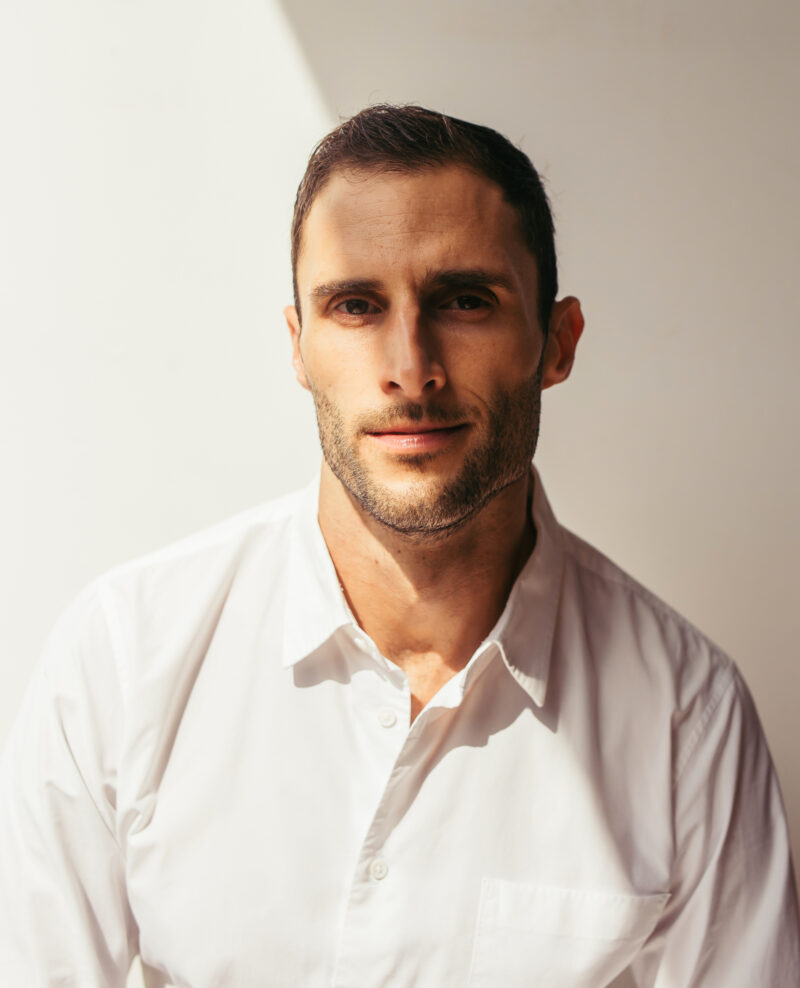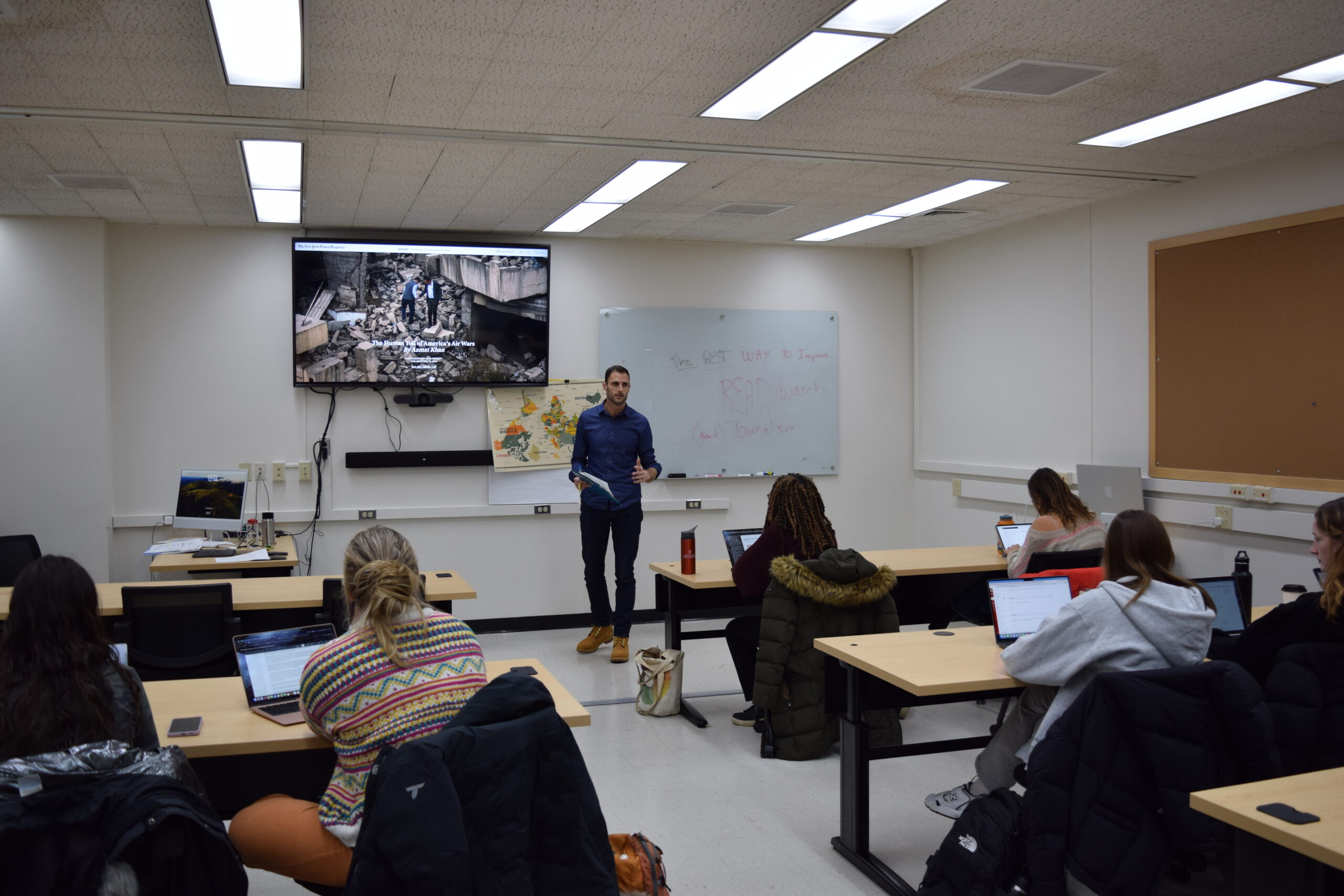Jacob K ushner (BA’10), J-School alum, adjunct instructor of JOURN475: International Reporting and author of the forthcoming book Look Away, did not have to think for too long when he was asked to return to his alma mater and teach a course. A long-time international correspondent, Kushner has covered migration, statelessness, global health, violent extremism and more.
ushner (BA’10), J-School alum, adjunct instructor of JOURN475: International Reporting and author of the forthcoming book Look Away, did not have to think for too long when he was asked to return to his alma mater and teach a course. A long-time international correspondent, Kushner has covered migration, statelessness, global health, violent extremism and more.
Kushner decided to make the shift to higher education teaching this fall.
“I’ve kind of just been doing the same thing forever and that’s why I’m so excited to teach for the first time. It was just totally new to me,” Kushner said. “I’ve spent most of my career abroad in different parts of the world. And, yeah, it’s just exciting to be back in Madison. See that there are students back at the journalism school as well, who are really interested in learning more about the world.”
To create an entire college course, Kushner called up several journalism professors for advice.
“I just did a survey of probably half a dozen different journalism professors asking them for suggestions,” Kushner said.
One of the most important aspects of the course is doing actual international reporting. As Kushner created his syllabus, he considered what was lacking in reporting classes he had taken in the past.
“When I was in the journalism school, there were opportunities to learn about international reporting, but there wasn’t an opportunity to do it,” Kushner said.

To close this gap, Kushner structured the course to assign each student a country to follow throughout the semester. The assignments are designed to engage students actively, from interviewing journalists in their selected countries about press freedom to pursuing their own story ideas.
Lauren Hafeman, an international reporting student and J-School senior, covered Nigeria this semester and is hoping to pursue international journalism in Africa after graduation.
“When I saw the course offering, I knew that I had to take it,” Hafeman said.
After traveling to Ghana this past summer, Hafeman originally wanted to focus on the country for the fall semester.
“I had a bunch of connections and I knew that when I was going to be spending an entire semester needing to interview people from the country that I chose I thought ‘oh, I really want Ghana,’” Hafeman said.
When Kushner presented his 20 selected options to the class, he pushed Hafeman to try reporting on somewhere she could start from scratch: Nigeria.
“He said it’d be a great opportunity for me to do Nigeria and really dig into another country in the area to grow my understanding. I was really thankful for him for that,” Hafeman said.
During class time, Kushner invited professionals from the international reporting industry to speak with the class about their experiences. One of the speakers even offered for the students to pitch their stories to her and her publication, News Decoder, according to Hafeman.
For their final project, students will create a reporting proposal they can submit for a grant with the Pulitzer Center’s Campus Consortium, a prize that enables students to travel abroad and immerse themselves in the country they are reporting on.
“This course is a unique opportunity for students to really get to know another country and a specific issue in that country and also the US’s influence on that country,” said Miquéla Thornton, a J-School professional masters student covering Kenya this fall.
This is exactly what Kushner hoped to provide to his students when he first designed the course – real-world international reporting practice.
“I think what is useful, I hope, about the course is helping students prepare to cover stories that take place in other places where they’re not, because that, frankly, is how a lot of dreams gets done today,” Kushner said.
His students believe in this principle too. “It’s taught me confidence in establishing yourself as a writer and a journalist,” Hafeman said.
This course, under Kushner’s guidance, empowers students to embrace diverse perspectives and pursue their journalistic aspirations beyond geographical limitations.